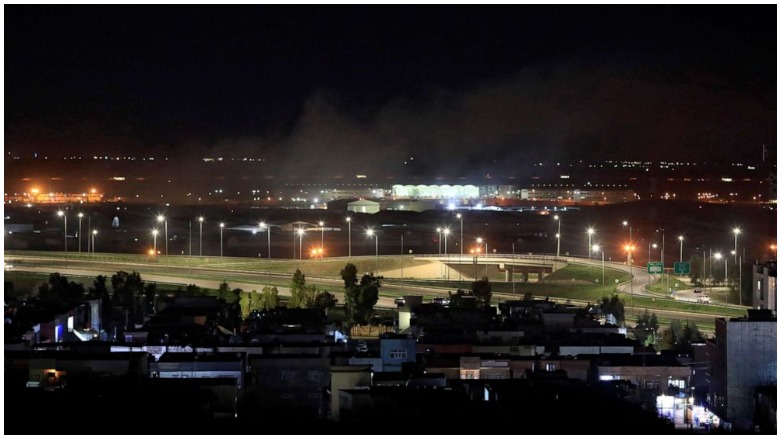Rep. McCaul calls for quick, decisive action to rocket attacks in Iraq

WASHINGTON DC (Kurdistan 24) - Rep. Michael McCaul, Lead Republican on the House Foreign Affairs Committee, called on the Biden administration to adopt a far more decisive position in response to the repeated rocket attacks against US targets in Iraq, beginning with last Monday’s assault on the Erbil base of the US-led Coalition against ISIS.
“The Erbil attack was over a week ago,” McCaul, who represents Texas’ 10th Congressional District, said in a statement provided to Kurdistan 24 on Tuesday. And “there have been two more rocket attacks since then,” he stated, referring to Saturday’s rocket attack on Balad Air Base, and Monday’s attack on the US embassy in Baghdad.
Read More: Rocket attack on US embassy in Baghdad
McCaul noted that the administration has said that “it will hold Iran accountable for attacks by proxies.”
Indeed, that language was articulated by State Department Spokesperson Ned Price on Monday, when he said, “We will hold Iran responsible for the actions of its proxies that attack Americans.” In a briefing, the previous week, on Thursday, Price had said, “There will be consequences for any group responsible for this attack.”
There is a major difference between the two statements. Price’s statement last Thursday suggested that the US response to attacks would fall on proxy groups, perhaps encouraging Iran in its belief that it could get away with the two attacks that followed. Price’s statement on Monday—“we will hold Iran responsible”—just possibly, made some contribution to correcting any misunderstandings in Iran.
But “these can’t be just words,” McCaul complained in his statement to Kurdistan 24. “It has to mean something, if it is going to deter future attacks.”
“The group that claimed credit for the Erbil attack is widely believed to have ties to Iran-backed fighters in Iraq,” the Texas Congressman affirmed.
Indeed, the claim of responsibility for the Erbil attack was made in the name of Saraya Awliya al-Dam (Guardians of the Blood)—i.e, the blood of Qasim Soleimani, head of the Qods Force of Iran’s Islamic Revolutionary Guard Corps, and Abu Mahdi al-Muhandis, head of Iraq’s Popular Mobilization Forces, who died as the US attacked Soleimani, as he flew into Baghdad a year ago.
Soleimani’s assassination followed the death of a US contractor in a rocket attack on an Iraqi military base near Kirkuk.
Read More: US strike kills Qasim Soleimani and Abu Mahdi al-Muhandis
While revenge attacks followed, the Trump administration brought at least a temporary halt to them last September, when it issued a very strong warning to Baghdad: if the Iraqi government did not stop those attacks, the US would close its embassy and launch “heavy US airstrikes against the militias,” as Washington Post columnist, David Ignatius, reported then.
Read More: US warns Iraq on Iranian-backed militias
Those militias soon declared a ceasefire, reportedly at the direction of Iran’s Supreme Leader, Ayatollah Ali Khamenei, himself.
So far, US officials maintain that they do not know which party was responsible for the three rocket attacks. They repeatedly say—and did so as recently as Monday—that they are waiting for the results of the investigations, even though there is no plausible suspect, besides the Iranian-backed militias.
Read More: US avoids confronting Iran on nuclear issues, rocket attacks
Thus, McCaul called on the administration to “act quickly and decisively with clear attribution and other steps to hold perpetrators accountable.”
And he added the warning, “Any equivocation risks more attacks with more possibilities of casualties.”
Editing by John J. Catherine